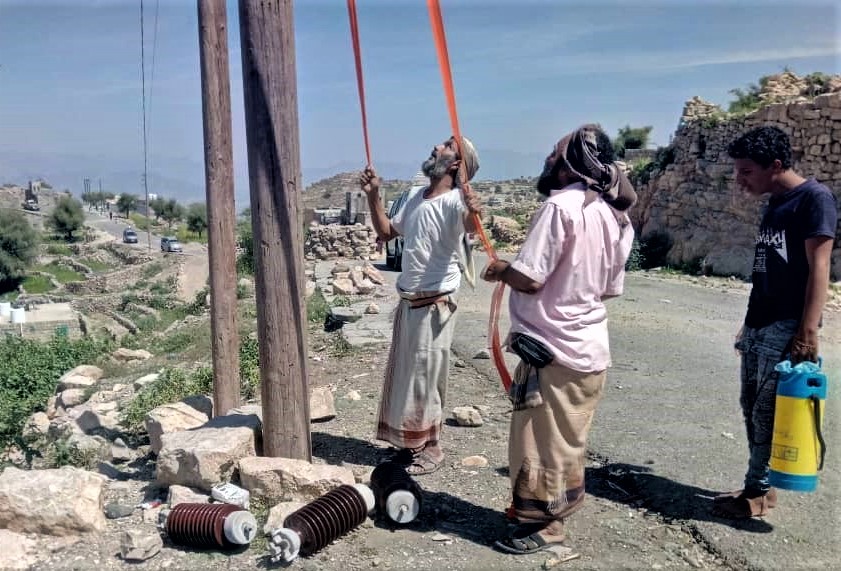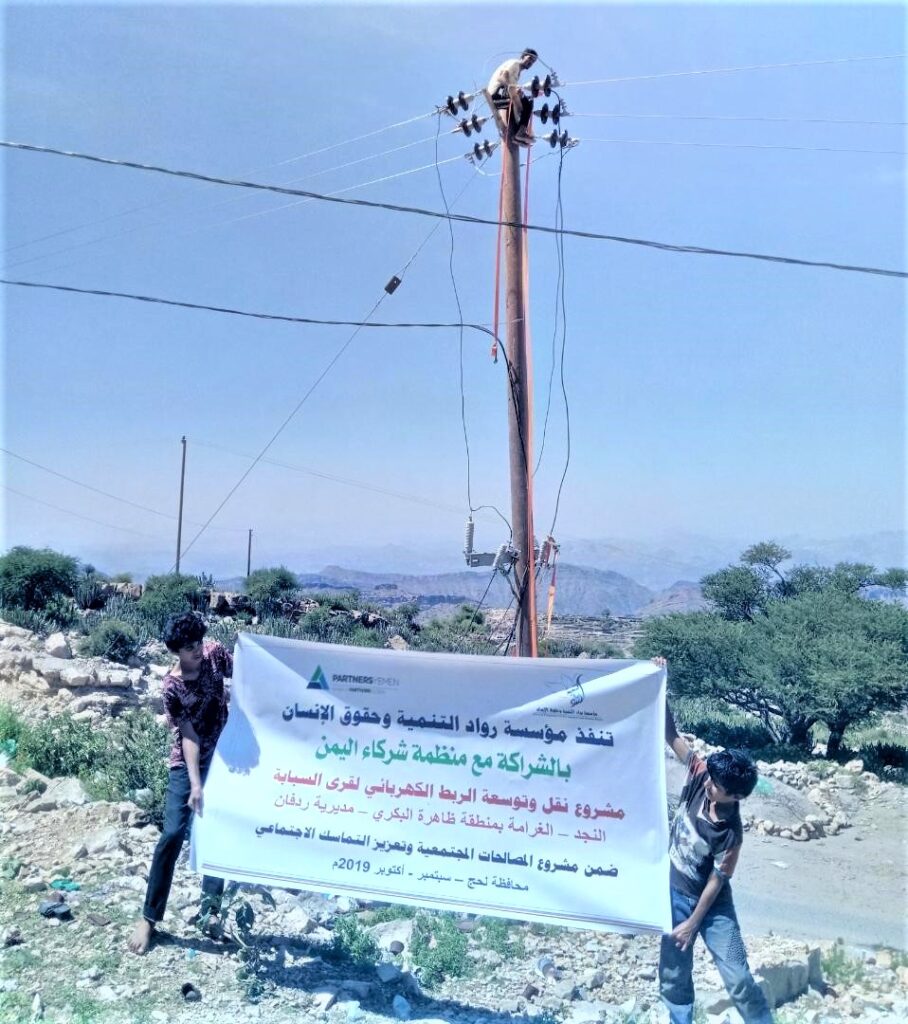Snapshot: Yemeni villagers launch new approach to promote reconciliation after electricity dispute
June 3, 2020

In places experiencing active conflict, access to valuable resources like electricity can be a lifeline, making the difference between having heat and going cold or being able to access vital information and being uninformed. In fact, access to an adequate standard of living is a basic human right protected by international law.
In the adjacent villages of Al-Sabbabah, Al-Najd, and Al-Gharameh in Radfan district of Lahj governorate, a dispute over connecting power lines threatened to leave several of the area’s residents without this vital resource. Viewing access to power as a zero sum, winner-take-all commodity, residents of Al-Najd, a small village of 240 people, would regularly threaten to disconnect the power lines to neighboring Al-Sabbabah, with a population of 840. In turn, Al-Sabbabah residents would retaliate by threatening to cut the power lines not only to Al-Najd but to several neighboring areas as well – leaving some 3,500 people without power. If power granted access to advantage, then the villagers wanted to secure all of it for their own residents.
In several cases, these threats led to physical violence between villagers, further exacerbating the already tense environment and weakening the social fabric of the community, a risk factor for increased conflict.
Recognizing the need to address past grievances and mitigate further conflict, PartnersGlobal and Partners Yemen, with the support of the State Department Bureau of Democracy, Human Rights, and Labor, supports a bottom-up dialogue process that gives citizens a mechanism to express and address their concerns with other community members and local officials.

Ultimately, community members come together to agree on initiatives to promote reconciliation. The Ruwwad Foundation for Development and Human Rights, a key partner, worked with community members to create a community committee to address concerns around the power lines and access to electricity. The committee was specifically designed to help streamline communication and find practical, mutually beneficial, and sustainable solutions to community grievances – starting with the power lines issue. To ensure their voices were heard, each village had an equal number of representatives on the committee.
After hearing from community members and discussing solutions, the committee members and the Ruwwad Foundation jointly contacted the Public Electricity Corporation and petitioned them to expand the power lines for the three villages. Meeting daily throughout the effort, the committee worked to surface and mitigate disputes, ensuring the villagers’ buy-in and helping to resolve conflict peacefully. The committee was also responsible for collecting community contributions to the effort and coordinating volunteers who helped the Public Electricity Corporation dig, rewire, and install the power lines.
Today, access to electricity has been successfully expanded to all three villages, and the inter-village community committee is continuing its work to ensure that as new disputes arise, they will be addressed jointly, fairly and free of violence. Partners Yemen’s critical work in Lahj and around Yemen supporting locally led reconciliation initiatives is laying the foundation for future justice and accountability efforts in the country.
